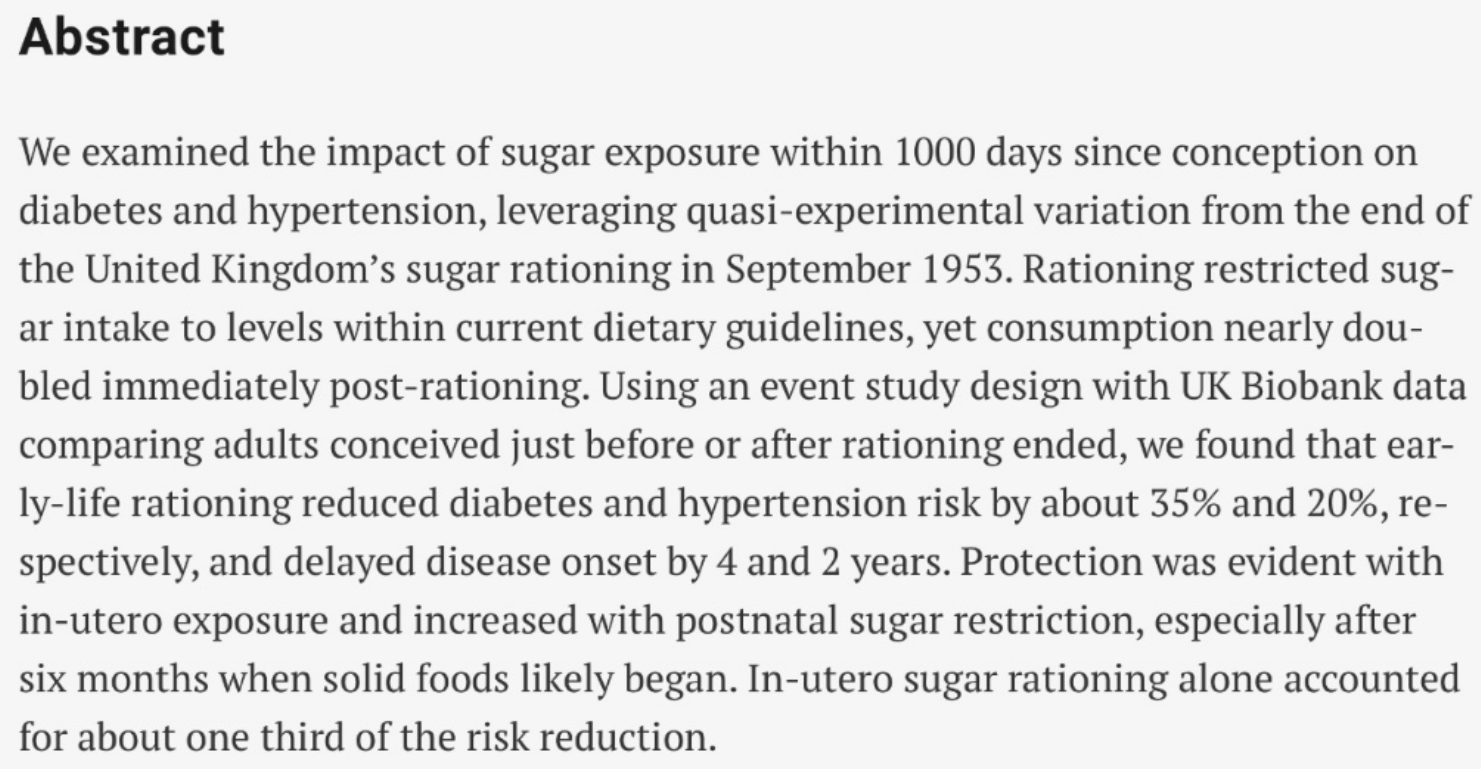
Low Sugar in Baby’s First 1,000 Days Reduces Chronic Disease Risk, Wartime Study Finds https://t.co/ShYeYxCVuA
— Sharon K. Gilbert (@sharonkgilbert) November 7, 2024
- Reduced Risk of Chronic Diseases: Limiting sugar consumption in early life decreases the likelihood of developing type 2 diabetes by 35% and hypertension by 20% in adulthood.
- Delayed Onset of Diseases: Early-life sugar restriction postpones the onset of type 2 diabetes by four years and hypertension by two years.
- Historical Context: The study analyzed individuals born during the UK’s WWII sugar rationing (1942–1953), comparing their health outcomes to those born after rationing ended.
- Sugar Consumption Levels: During rationing, daily sugar intake was about 40 grams (8 teaspoons), aligning with current dietary guidelines. Post-rationing, intake nearly doubled to 80 grams (16 teaspoons) per day.
- Impact of Maternal Diet: Maternal sugar intake during pregnancy influences the child’s future health, emphasizing the importance of a low-sugar diet for expectant mothers.
- Policy Implications: The findings support current dietary recommendations to limit added sugars for children under two years old.
- Nutritional Education: Educating parents and caregivers about the benefits of reducing sugar in early childhood is crucial for long-term health.
- Food Industry Role: There’s a call for the food industry to reformulate baby foods with lower sugar content to support healthier early-life diets.
- Long-Term Health Benefits: Early dietary interventions can lead to significant reductions in chronic disease prevalence and healthcare costs.
- Global Relevance: While based on UK data, the study’s implications are applicable worldwide, advocating for reduced sugar intake in early childhood globally.
Want to know more?
Exposure to sugar rationing in the first 1000 days of life protected against chronic disease








Add comment